by Lisa Cooke | Sep 18, 2013 | 01 What's New, British, Census, FamilySearch, Immigration, Military, Records & databases
It’s hard to keep up with the content constantly being added online at FamilySearch! If you (like me) spent the past month squeezing the last bit of travel an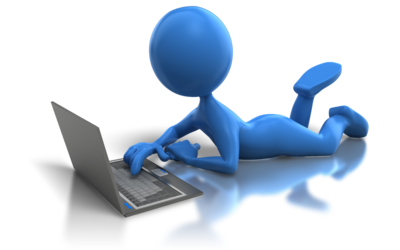 d sun from the summer, you may have missed some great new content. Here’s a recap:
d sun from the summer, you may have missed some great new content. Here’s a recap:
This month, over a half million indexed records and images have already shown up from Czech Republic, Hungary, Poland, Guatemala, Italy, New Zealand and the United States. Highlights include updates to the United States Social Security Death Index, images from the Czech Republic, Censuses, 1843–1921, collection, indexed records from the Hungary, Civil Registration, 1895–1980, collection, images from the new U.S., Indiana, Naturalization Records and Indexes, 1848-1992, collection and the Italy, Mantova, Mantova, Censuses (Comune), 1750-1900, collection, and indexed records from the U.S., Maine, State Archive Collections, 1718-1957, collection.
In August, FamilySearch.org added more than 45 million indexed records and images from BillionGraves and from Italy, the U.S., England, New Zealand, Sweden, Italy, Jamaica, Chile, Honduras and more. Notable U.S. additions are updates to the New Orleans Passenger Lists and newly-indexed war collections, including: the United States, World War II Prisoners of War of the Japanese, 1941-1945, collection, the United States, Korean War Battle Deaths, 1950-1957, collection, and the United States, Casualties of the Vietnam War, 1956-1998, collection.
A few more cool additions include:
- More than a half million images to a growing collection of Italy’s Civil Registrations;
- Nearly a million indexed Jamaican and a quarter million Chilean civil registrations;
- More than 2.5 million indexed recods from New Zealand passenger lists (1855-1973);
- Nearly a half-million indexed names from Boston passenger lists (1820-1891);
- Over 41 million indexed names added to the U.S. Public Record Index.
Search these and 3.5 billion more records at FamilySearch.org. Records are always free to search here, thanks both to the organization itself and thousands of volunteers around the world who index records. Join the effort here!
by Lisa Cooke | Jul 30, 2014 | 01 What's New, Ancestry, Beginner, Book Club, Inspiration, Libraries, Research Skills
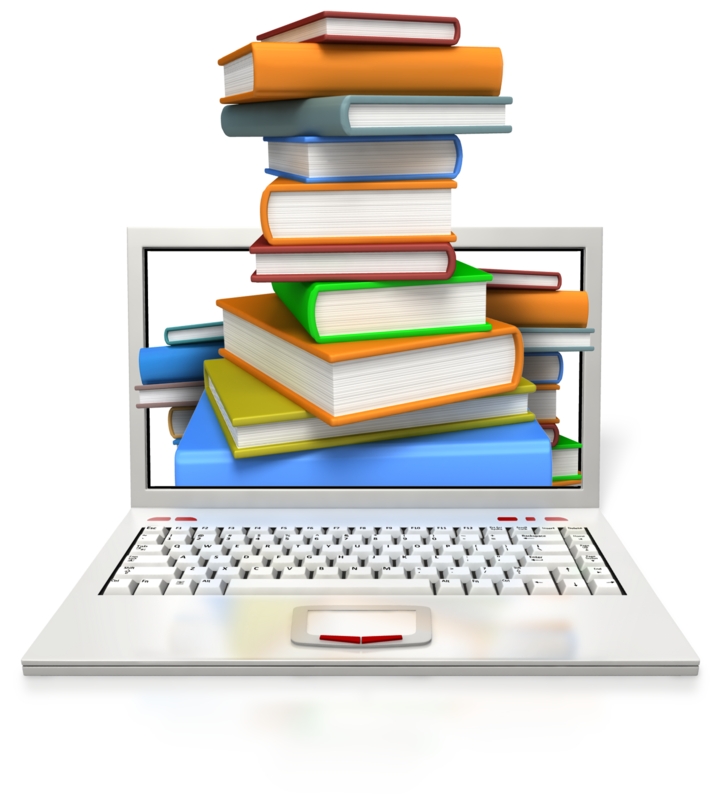
genealogy at the public library
This week, I’m researching at the Allen County Public Library in Fort Wayne, Indiana, which has one of the best public library genealogy collections in the United States. They’ve got more than half a million items on microfilm and fiche and 350,000 more in print. Among these items are nearly 50,00o city directories; 55,000 compiled family histories; most National Archives microfilmed military service and pension records….Okay, I’ll stop before you get jealous.
But in fact, MOST public libraries have some good genealogy resources. Have you checked out the library near you lately? OR the local history and genealogy collection in a public library near where your ancestors lived? You may likely find these 5 great resources:
- Access to paid subscription genealogy websites like Ancestry.com Library Edition, HeritageQuest Online, Fold3 and other genealogy databases.
- Local historical newspapers–or at least obituaries from them. ALSO access to historical newspaper websites like GenealogyBank.com which may have papers you’ll never travel to see in person.
- City directories, old maps and/or local histories for that town.
- Surname files. These aren’t at every public library, but you’ll often find them in libraries that have dedicated genealogy rooms. These likely won’t be neatly organized files with perfect family trees in them, but collections of documents, bibliographic references and correspondence relating to anyone with that surname.
- Other surprising local history resources. For example, my hometown library in Euclid, Ohio, has online collections of Euclid newspapers, history, yearbooks and oral histories!
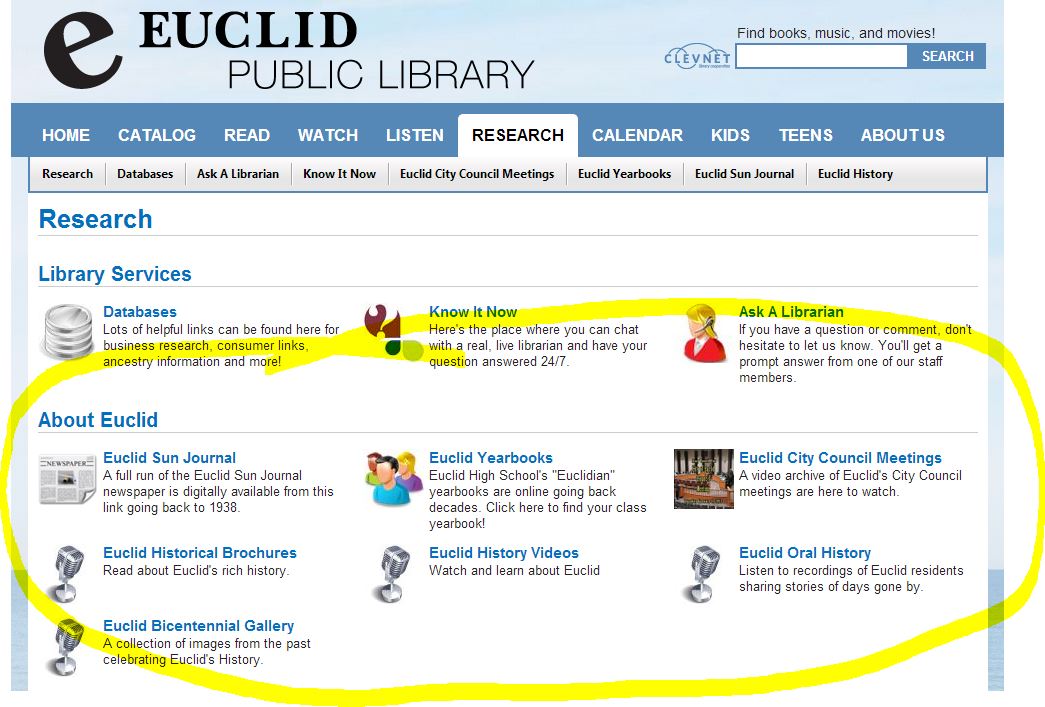
What does your library have? Browse its website or call and ask about its local history and genealogy collections. You might even Google the name of the county with the phrases “public library” and “local history” or “genealogy.” Another branch of the same library system (not in your own or ancestor’s town but nearby) might have just what you need to find your family history!
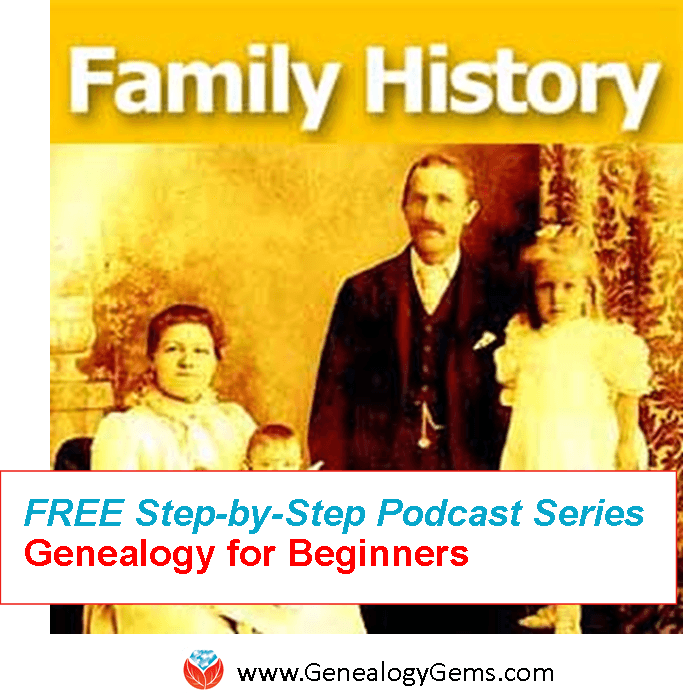
Listen to the Family History: Genealogy Made Easy podcast by Lisa Louise Cooke. It’s a great series for learning the research ropes and well as refreshing your skills.
Want to learn more about doing genealogy at the public library? Check out two recently republished episodes of Lisa’s Family History Made Easy podcast:
Episode 34: Do Your Genealogy at the Public Library, Part 1 Genealogy librarian Patricia VanSkaik talks to us about researching at public libraries. She shares what kinds of things may be at the library (including unique resources), how to prepare for a visit and lots of great tips for making the most of your research time there.
Episode 35: Do Your Genealogy at the Public Library, Part 2 We go deeper into genealogy research at the public library. Genealogy librarian Patricia VanSkaik is back to talk about how to search an online library card catalog including advanced search methods, the unique collections that may be at public libraries, how to ask for exactly what we want, and the obstacles librarians face when it comes to cataloguing large and unique collections that may interest genealogists.
by Lisa Cooke | Sep 20, 2015 | 01 What's New, images, Technology
Millions of us already rely on Siri (that disembodied voice on our iPhones) to find us the nearest gas station, make hands-free calls and answer random questions. Amazon Echo now offers that same kind of voice-activated help throughout your house.
 There’s a lot of good gadgetry in the Iron Man movies, but my favorite is Jarvis, the virtual butler in Tony Stark’s house. He anticipates Tony’s every need, controls his home technology, even comments on his personal life.
There’s a lot of good gadgetry in the Iron Man movies, but my favorite is Jarvis, the virtual butler in Tony Stark’s house. He anticipates Tony’s every need, controls his home technology, even comments on his personal life.
Jarvis immediately came to mind when I heard about the new Amazon Echo from longtime Premium Member Jennifer from California. She raved about it so enthusiastically I bought one!
For $179, the Amazon Echo gives you “an always-listening Siri for your living room,”as FastCompany.com describes it. “It’s Amazon’s vision of the platform of the future, one that gives you the ability to control your home by voice.”
gives you “an always-listening Siri for your living room,”as FastCompany.com describes it. “It’s Amazon’s vision of the platform of the future, one that gives you the ability to control your home by voice.”
So why am I, a genealogy podcaster, blogging about the Amazon Echo ? Well, it works as a whole-house sound system for listening to music, audio books and–you guessed it–podcasts! Thanks to the smartphone, podcast listening has become much more convenient thanks to native podcast apps like Apple’s “Podcasts”and our own Genealogy Gems Podcast app. But when it comes to listening at home, you may not always want to be tethered to your smartphone or iPod. Now, with the Echo, you don’t have to be.
? Well, it works as a whole-house sound system for listening to music, audio books and–you guessed it–podcasts! Thanks to the smartphone, podcast listening has become much more convenient thanks to native podcast apps like Apple’s “Podcasts”and our own Genealogy Gems Podcast app. But when it comes to listening at home, you may not always want to be tethered to your smartphone or iPod. Now, with the Echo, you don’t have to be.
 The Genealogy Gems Podcast is now on the Echo. To the best of my knowledge, podcasts are only available on the Echo via TuneIn. I knew as soon as I fell in love with Amazon Echo that The Genealogy Gems Podcast needed to be there. And now it is! TuneIn has added the Genealogy Gems podcast to its lineup so you can listen with the Amazon Echo. Click here to visit our TuneIn page.
The Genealogy Gems Podcast is now on the Echo. To the best of my knowledge, podcasts are only available on the Echo via TuneIn. I knew as soon as I fell in love with Amazon Echo that The Genealogy Gems Podcast needed to be there. And now it is! TuneIn has added the Genealogy Gems podcast to its lineup so you can listen with the Amazon Echo. Click here to visit our TuneIn page.
But using the Echo for listening is just the beginning! “The key is what’s inside: Alexa, an always-listening Siri for your living room,” says that same Fastcompany.com article. “It’s Amazon’s vision of the platform of the future, one that gives you the ability to control your home by voice.”
 my Amazon Echo fresh out of the box
my Amazon Echo fresh out of the boxFor example? It syncs with Google Calendar. Sweet! When I need to know the next deadline coming up, I ask Alexa. When I get an inspiration for the next podcast episode in the middle of making dinner (with marinade up to my elbows) I just tell Alexa to add it to my To Do list. And when I use that last clove of garlic, I just say “Alexa, add garlic to the shopping list.”
The Echo can also read you breaking headlines, tell you the weather forecast, set a timer or alarm for you, and interact with other home technologies that are gradually gaining that capacity. And of course it can answer your random questions, too. (Try these fun questions and commands from other Echo owners.)
 The most challenging part of installation: “Where does the plug go?” Right here in the bottom of the Echo!
The most challenging part of installation: “Where does the plug go?” Right here in the bottom of the Echo!I’ve definitely gotten my money’s worth out of Echo! I just call her name and give her a command and she does it. I’m surprised how much I enjoy having her in the kitchen.
If you decide to purchase Amazon Echo , thanks for using our links! Your purchases support the free Genealogy Gems podcast and all the free content on our website.
, thanks for using our links! Your purchases support the free Genealogy Gems podcast and all the free content on our website.
 My dog Howie listening to Alexa (you can tell Alexa is talking because the top lights up)
My dog Howie listening to Alexa (you can tell Alexa is talking because the top lights up) by Lisa Cooke | Oct 15, 2015 | 01 What's New, Adoption, African-American, DNA, Health History
Two cousins recently chatted after learning that they share DNA. The first asked whether the second is white. “No,” she answered. The response: “Are you sure?”
In our modern society, families are defined in a myriad of different ways. Using DNA for genealogy is certainly contributing to these
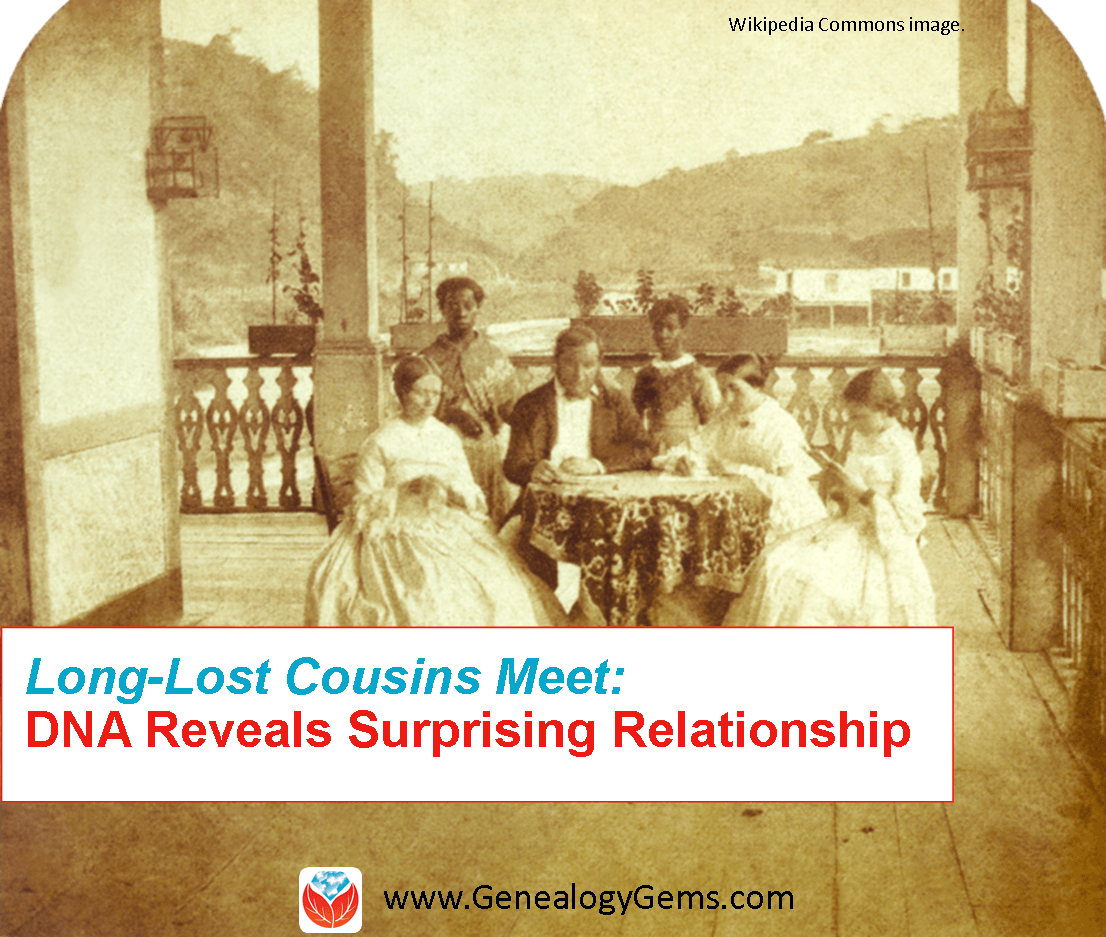
A family and its female slave house servants in Brazil, c.1860. Wikimedia Commons image. Click to view full source citation.
changing definitions, as families find themselves genetically linked across social and cultural boundaries to kin they never expected.
Such is the case for a Bartow, Florida resident who submitted a DNA test out of curiosity and found more than she expected. Through a combination of DNA testing and social media, Mary McPherson, who is white, met one of her cousins, Dolores Washington-Fleming, who is black.
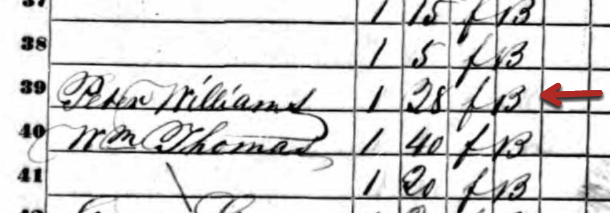
Peter Williams’ entry in 1850 U.S. Census Slave Schedule, St Bartholomews Parish, Colleton, South Carolina. Image from Ancestry.com.
According to an article on The Ledger, the two women share a great-great-grandfather, Peter Edward Williams, who was born in South Carolina two centuries ago. Peter was a slaveholder. The 1850 census slave schedule shows that he held a female slave who was a few years younger than she was. Dolores believes that’s her grandmother’s grandmother.
The two finally met this past May for the first time and enjoyed this new definition of family. I think what I like most is what Dolores’ son said about the situation: “My mom and I are fascinated by history, and this is history. We represent what the times were like back then.” It still boggles my mind just a little that we are able to use the DNA of living people today to resurrect the past, and bring depth and meaning to the present, and possibly even prepare us for the future.
I find myself in a similar situation to Dolores and Mary. My mom was adopted, and even though we have had DNA testing completed for several years, we didn’t have any close matches, and honestly, we weren’t looking. Though she did have a passing interest in her health history, my mom did not feel the need to seek out her biological family. But then over the last few months various pieces of her puzzle have started to fall into place. This is much because of a key DNA match that popped up in March.
With that one match and subsequent correspondence, our interest in my mom’s biological family has skyrocketed. Why? I think it is because our DNA match, sisters from Texas, have shown us genuine kindness and interest. They have truly shown us what it means to be family. Even though we are unexpected, even though we aren’t sure yet how exactly we are connected, they have embraced us without reservation without hesitation.
To me, this is what family is. They accept you in whatever condition you come in and do their best to make you feel like you belong. Now, that kind of welcome isn’t felt by everyone who meets their genetic cousins, and people should carefully consider whether they’re ready for unforeseen results or unanticipated reactions from DNA matches before they get started.
But what about you? If you’ve started down the genetics path, how has DNA testing expanded or strengthened your definition of family?
Learn more about DNA testing for genealogy–how to get started or how to make sense of testing you’ve already had–with my quick guides available at the Genealogy Gems store, and then contact me at YourDNAGuide.com to arrange your own personal DNA consultation.
Resources for DNA for Genealogy
DNA Quick Guides for Genealogy (Bundle them for savings!): Getting Started, Autosomal DNA, Y Chromosome DNA, Mitochondrial DNA, Understanding Ancestry,  Understanding Family Tree DNA
Understanding Family Tree DNA
New AncestryDNA Common Matches Tool: Love It!
Confused by Your AncestryDNA Matches?
 Thank you for sharing this article with others by email or on your favorite social media site. You’re a gem!
Thank you for sharing this article with others by email or on your favorite social media site. You’re a gem!
 d sun from the summer, you may have missed some great new content. Here’s a recap:
d sun from the summer, you may have missed some great new content. Here’s a recap:










 Understanding Family Tree DNA
Understanding Family Tree DNA Thank you for sharing this article with others by email or on your favorite social media site.
Thank you for sharing this article with others by email or on your favorite social media site.